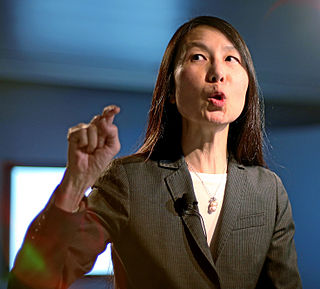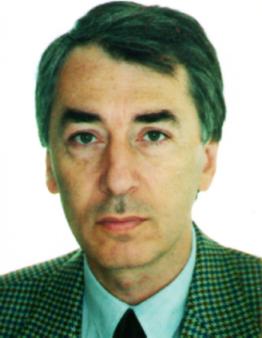Related Research Articles

Dagstuhl is a computer science research center in Germany, located in and named after a district of the town of Wadern, Merzig-Wadern, Saarland.
The Z User Group (ZUG) was established in 1992 to promote use and development of the Z notation, a formal specification language for the description of and reasoning about computer-based systems. It was formally constituted on 14 December 1992 during the ZUM'92 Z User Meeting in London, England.

Egon Börger is a German-born computer scientist based in Italy.
Algorithmic Number Theory Symposium (ANTS) is a biennial academic conference, first held in Cornell in 1994, constituting an international forum for the presentation of new research in computational number theory. They are devoted to algorithmic aspects of number theory, including elementary number theory, algebraic number theory, analytic number theory, geometry of numbers, arithmetic geometry, finite fields, and cryptography.

Jeannette Marie Wing is Avanessians Director of the Data Science Institute at Columbia University, where she is also a professor of computer science. Until June 30, 2017, she was Corporate Vice President of Microsoft Research with oversight of its core research laboratories around the world and Microsoft Research Connections. Prior to 2013, she was the President's Professor of Computer Science at Carnegie Mellon University, Pittsburgh, Pennsylvania, United States. She also served as assistant director for Computer and Information Science and Engineering at the NSF from 2007 to 2010. She was appointed the Columbia University executive vice president for research in 2021.

Yuri Gurevich, Professor Emeritus at the University of Michigan, is an American computer scientist and mathematician and the inventor of abstract state machines.
WADS, the Algorithms and Data Structures Symposium, is an international academic conference in the field of computer science, focusing on algorithms and data structures. WADS is held every second year, usually in Canada and always in North America. It is held in alternation with its sister conference, the Scandinavian Symposium and Workshops on Algorithm Theory (SWAT), which is usually held in Scandinavia and always in Northern Europe. Historically, the proceedings of both conferences were published by Springer Verlag through their Lecture Notes in Computer Science series. Springer continues to publish WADS proceedings, but starting in 2016, SWAT proceedings are now published by Dagstuhl through their Leibniz International Proceedings in Informatics.
WoLLIC, the Workshop on Logic, Language, Information and Computation is an academic conference in the field of pure and applied logic and theoretical computer science. WoLLIC has been organised annually since 1994, typically in June or July; the conference is scientifically sponsored by the Association for Logic, Language and Information, the Association for Symbolic Logic, the European Association for Theoretical Computer Science and the European Association for Computer Science Logic.

Peter Ružička was a Slovak computer scientist and mathematician who worked in the fields of distributed computing and computer networks. He was a professor at the Comenius University, Faculty of Mathematics, Physics and Informatics working in several research areas of theoretical computer science throughout his long career.

Reachability is a fundamental problem that appears in several different contexts: finite- and infinite-state concurrent systems, computational models like cellular automata and Petri nets, program analysis, discrete and continuous systems, time critical systems, hybrid systems, rewriting systems, probabilistic and parametric systems, and open systems modelled as games.
Rüdiger Valk is a German mathematician. From 1976 to 2010 he was Professor for Theoretical Computer Science (Informatics) at the Institut für Informatik of the University of Hamburg, Germany.
Christopher Umans is a professor of Computer Science in the Computing and Mathematical Sciences Department at the California Institute of Technology. He is known for work on algorithms, computational complexity, algebraic complexity, and hardness of approximation.
In mathematics, a rational monoid is a monoid, an algebraic structure, for which each element can be represented in a "normal form" that can be computed by a finite transducer: multiplication in such a monoid is "easy", in the sense that it can be described by a rational function.

Gad Menahem Landau is an Israeli computer scientist noted for his contributions to combinatorial pattern matching and string algorithms and is the founding department chair of the Computer Science Department at the University of Haifa.
In mathematics, the Skolem problem is the problem of determining whether the values of a constant-recursive sequence include the number zero. The problem can be formulated for recurrences over different types of numbers, including integers, rational numbers, and algebraic numbers. It is not known whether there exists an algorithm that can solve this problem.
Derick Wood (1940–2010) was an English computer scientist who worked for many years as a professor of computer science in Canada and Hong Kong. He was known for his research in automata theory and formal languages, much of which he published in collaboration with Hermann Maurer and Arto Salomaa, and also for his work in computational geometry.

EvoStar, or Evo*, is an international scientific event devoted to evolutionary computation held in Europe. Its structure has evolved over time and it currently comprises four conferences: EuroGP the annual conference on Genetic Programming, EvoApplications, the International Conference on the Applications of Evolutionary Computation, EvoCOP, European Conference on Evolutionary Computation in Combinatorial Optimisation, and EvoMUSART, the International Conference on Computational Intelligence in Music, Sound, Art and Design. According to a 2016 study EvoApplications is a Q1 conference, while EuroGP and EvoCOP are both Q2. In 2021, EuroGP, EvoApplications and EvoCOP obtained a CORE rank B.

Parallel Problem Solving from Nature, or PPSN, is a research conference focusing on the topic of natural computing.
Hartmut Ehrig was a German computer scientist and professor of theoretical computer science and formal specification. He was a pioneer in algebraic specification of abstract data types, and in graph grammars.
References
- ↑ Alain Finkel, Jérôme Leroux, Igor Potapov (Eds.): Reachability Problems - 6th International Workshop, RP 2012, Bordeaux, France, September 17–19, 2012. Proceedings. Lecture Notes in Computer Science 7550, Springer 2012, ISBN 978-3-642-33511-2
- ↑ Giorgio Delzanno, Igor Potapov (Eds.): Reachability Problems - 5th International Workshop, RP 2011, Genoa, Italy, September 28–30, 2011. Proceedings. Lecture Notes in Computer Science 6945, Springer 2011, ISBN 978-3-642-24287-8
- ↑ Antonín Kucera, Igor Potapov (Eds.): Reachability Problems, 4th International Workshop, RP 2010, Brno, Czech Republic, August 28–29, 2010. Proceedings. Lecture Notes in Computer Science 6227, Springer 2010, ISBN 978-3-642-15348-8
- ↑ Olivier Bournez, Igor Potapov (Eds.): Reachability Problems, 3rd International Workshop, RP 2009, Palaiseau, France, September 23–25, 2009. Proceedings. Lecture Notes in Computer Science 5797, Springer 2009, ISBN 978-3-642-04419-9
- ↑ Vesa Halava, Igor Potapov: Preface. Electr. Notes Theor. Comput. Sci. 223: 1-2 (2008)